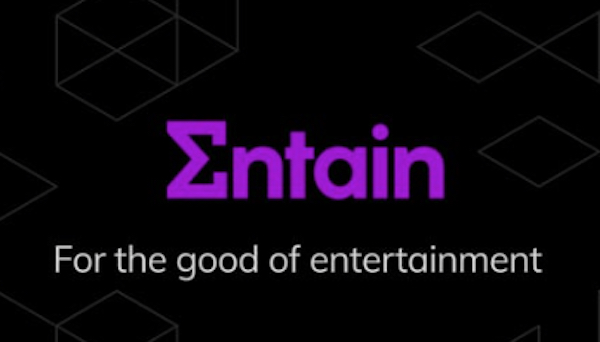Online Gaming
Entertainment company looks at major expansion of sports betting and online gaming holdings

Entain Groups Bid for William Hill
Betting fans familiar with the Entain Group have witnessed a recent expansion, as the company acquires multiple brands for billions of dollars. It appears Entain isn’t finished expanding their empire, as announcements were issued that a bid for William Hill has been formally given. This means that by 2022, Entain could manage one of the betting industries largest operators. It would effectively make them the most prominent operator worldwide.
It’s known that Entain Ltd is competing against Caesars Entertainment & MGM International for the acquisition of William Hill America. However, details regarding how much they have bid against their rivals aren’t known. It’ll be higher than $4 Billion, with some analysts estimating that $6 Billion has been offered.
The Group acquiring William Hill UK would increase their international market share. This corporate entity maintains ownership of Ladbrokes & Coral in the United Kingdom. Subsequently, there’d be no larger operator of physical-based betting locations bigger than Entain Ltd.
Analysts report the global entity could attract regulatory problems by purchasing the collection of William Hill’s assets. The reason being? By owning William Hill, Ladbrokes, and Coral, this corporation would maintain a monopoly over the United Kingdom’s brick & mortar betting industry.
Regulators typically oppose monopolies, but those oppositions could be avoided for Entain. It’s because the company has proven its regulatory standards by owning numerous brands with international recognition. Furthermore, this corporation has purchased large-scale companies like Tabcorp Holdings in Australia for $2.7 Billion. As such, the market shouldn’t anticipate any opposition against Entain acquiring William Hill.
Entain Group’s PartyCasino UK
There’s an expansive variety of betting opportunities under the Entain banner, including PartyCasino with over 1000 online slot titles. This casino site dominates markets on a global scale. As such, an unforgettable experience is generated while registered members experience profitable promotions like the Welcome Bonus.
The Group is the preferred option for the acquisition of William Hill. This corporate entity manages its brands with responsible gaming in mind. This is proven through the influential software providers that are distributed throughout their brands. It guarantees gameplay is innovative, engaging, and profitable. Software providers consumers can expect, include:

Sportsbook and Table Games.
Interested gaming enthusiasts who register an account with an Entain Group gambling property aren’t limited to the video slot. There’s an online sportsbook that hosts events relating to Basketball, Football, Hockey, Baseball, Motorsports, and Cricket. There’ll be other options that don’t have an identical level of popularity but can award similar payouts. That’s because sporting events from North America, Europe, Asia, and Oceania Regions are all covered. It enables a versatile experience for sports betting enthusiasts.
Furthermore, customers are usually happy to go beyond the sports betting option, as there are numerous renditions of popular games like Blackjack, Roulette, Keno, Craps, Baccarat, and Texas Hold’em. Those titles are matched with promising bonuses that award hundreds in additional credits that are usable across the table games, video slots, or live casino.
Also Interesting
How to Deposit and Withdraw in CAD at Sol Casino: A Guide for Canadian Players

When choosing an online casino, Canadian players not only look for exciting games and bonuses but also for easy and secure payment methods in Canadian dollars (CAD). Sol Casino understands this need and has created a streamlined system for deposits and withdrawals that suits players across Canada.
This guide walks you through how to fund your account, cash out your winnings, and which methods are most efficient and convenient.
Why Use CAD at Sol Casino?
Sol Casino supports transactions directly in Canadian dollars, which is a huge advantage. This means:
No currency conversion fees
Simplified banking
Faster transactions
Better tracking of your gambling budget
For Canadian players, avoiding unnecessary fees and delays is crucial. Sol Casino ensures you can deposit and withdraw in your local currency without any added complications.
How to Deposit Funds at Sol Casino (Step by Step)
Funding your Sol Casino account is simple. Follow these steps to make a deposit:
1. Log in to your Sol Casino account.
2. Go to the Cashier/Deposit section.
3. Choose your preferred payment method.
4. Enter the amount you wish to deposit (minimum deposit usually starts at $20 CAD).
5. Follow the prompts to complete the transaction.
Most deposits are instant, meaning you can start playing right away.
Popular Deposit Methods for Canadians
Sol Casino offers a variety of trusted options tailored for Canadian players:
Interac e-Transfer: A go-to choice in Canada, easy to use and highly secure.
MuchBetter: A modern e-wallet app offering fast, private transfers.
ecoPayz: Another reliable e-wallet widely used in Canada.
Visa/Mastercard: Traditional and familiar for most users.
Cryptocurrencies: Includes Bitcoin, Ethereum, and more for added privacy.
Each method is secure and designed to fit your lifestyle and preferences.
How to Withdraw Winnings in CAD
Cashing out your winnings is just as easy. Here’s how to request a withdrawal:
1. Go to your account dashboard and select Withdraw.
2. Choose the same method used for depositing (if possible).
3. Enter the amount you want to withdraw.
4. Submit your request and wait for confirmation.
Before processing your first withdrawal, Sol Casino may ask for ID verification to comply with KYC (Know Your Customer) rules. This is standard for any legitimate casino and helps protect your account from fraud.
Withdrawal Processing Time
Sol Casino processes withdrawal requests quickly. Here’s a general idea of how long it may take:
E-wallets (MuchBetter, ecoPayz): 0–24 hours
Cryptocurrency: 1–12 hours (depending on network speed)
Interac: 1–2 business days
Cards (Visa/Mastercard): Up to 3–5 business days
Once your identity is verified, future withdrawals are often processed faster.
Tips for Smooth Transactions
Verify your account early to avoid delays during your first withdrawal.
Use the same method for deposit and withdrawal whenever possible.
Set responsible limits to manage your gambling activity.
Watch for promotions offering cashback or deposit bonuses for specific payment methods.
Sol Casino also sends notifications and email confirmations for each transaction, adding transparency to the process.
Customer Support for Payment Issues
If you run into any trouble while depositing or withdrawing, Sol Casino has a 24/7 support team ready to help. You can use:
Live chat for immediate assistance
Email support for more detailed inquiries
FAQ section with answers to common questions about payments
All services are available in English and French, making support accessible to all Canadian users.
Conclusion: Fast, Flexible, and Canadian-Friendly Banking
Sol Casino has built a payment system that respects Canadian needs. With support for CAD, a variety of local methods like Interac and MuchBetter, and fast withdrawals, it provides a hassle-free banking experience. Whether you’re playing for fun or aiming for big wins, Sol Casino ensures your money is handled safely, securely, and efficiently.
Also Interesting
Why Some Players Avoid Jackpot Slots: Understanding the Drawbacks

When players envision big victories in social sweepstakes casinos, jackpot slots are typically the first thing that comes to mind. The allure of substantial rewards makes them incredibly appealing. Yet, in spite of their appeal, certain players opt to steer clear of jackpot slots entirely. In this article, we will explore the reasons why certain players opt to steer clear of jackpot slots, and how these factors influence their gaming experience.
What Are Jackpot Slots?
Before jumping into why certain players steer clear of jackpot slots, it’s essential to understand what they entail. Jackpot slots are unique slot games designed to accumulate a portion of the gameplay into an ever-growing jackpot. The jackpot has the potential to keep increasing until a lucky player hits the winning combination. The allure of these games lies in the substantial rewards they present, and numerous social sweepstakes casinos, like Zula Casino, feature a wide selection of jackpot slots to choose from.
The Drawbacks of Jackpot Slots
While the chance to win a massive jackpot is thrilling, it’s not always the right choice for every player. Here are some of the reasons why some players avoid jackpot slots:
1. Higher Volatility
Jackpot slots often have higher volatility than regular slots, meaning that they may not pay out as frequently. Players may experience extended periods without any wins, which can be disheartening for many. A bigger jackpot often means that players encounter fewer small wins throughout their journey, potentially resulting in frustration.
2. Longer Gameplay Without Immediate Rewards
If you prefer steady, smaller victories during your gaming experience, jackpot slots might not be the ideal choice for you. Given that the jackpot is awarded only under particular conditions, players may experience extended stretches without any returns.
The gradual nature of these rewards may not provide the same level of satisfaction for players who enjoy a more dynamic or rapid gaming experience.
3. The “Chasing the Jackpot” Mentality
While the jackpot prize is tempting, some players may find themselves becoming fixated on the idea of hitting that big win. This mindset can result in disappointment when the jackpot isn’t won, or even worse, prompt individuals to make bolder moves in a bid to trigger that elusive jackpot. The thrill of chasing the jackpot, paired with extended periods of no wins, can lead to player fatigue.
4. A Sense of Unpredictability
The random nature of jackpot slots ensures that every spin is a surprise. For certain players, this element of surprise is thrilling, while for others, it may be a dealbreaker.
The uncertainty of when the jackpot will be won or how long it may take for the game to deliver a reward can lead to frustration, particularly for players experiencing a losing streak.
Why Some Players Stick With Non-Jackpot Slots
Jackpot slots certainly have their allure, but for those seeking a steadier gaming experience, non-jackpot slots are often the preferred choice. These games typically provide smaller yet more frequent rewards, making them particularly enjoyable for players who favor consistent engagement. Non-jackpot slots provide a thrilling experience and are packed with opportunities for fun and excitement.
At Zula Casino, players have the freedom to choose from a wide variety of games, whether it’s jackpot slots or other exciting options. With so many choices, every player can find a game that suits their preferences.
Conclusion
Jackpot slots undoubtedly have a lot of allure with their massive potential rewards, but they also come with certain drawbacks that may not appeal to every player. From higher volatility to the unpredictability of payouts, jackpot slots are not always the best fit for those who prefer a more consistent gaming experience. Zula Casino presents an extensive selection of options, featuring jackpot slots that allow players to discover the perfect game tailored to their unique style of play.
-

 2025 Federal Election2 days ago
2025 Federal Election2 days agoBREAKING: THE FEDERAL BRIEF THAT SHOULD SINK CARNEY
-

 John Stossel2 days ago
John Stossel2 days agoClimate Change Myths Part 2: Wildfires, Drought, Rising Sea Level, and Coral Reefs
-

 2025 Federal Election2 days ago
2025 Federal Election2 days agoCHINESE ELECTION THREAT WARNING: Conservative Candidate Joe Tay Paused Public Campaign
-

 Media2 days ago
Media2 days agoCBC retracts false claims about residential schools after accusing Rebel News of ‘misinformation’
-

 Business2 days ago
Business2 days ago‘Great Reset’ champion Klaus Schwab resigns from WEF
-

 Bjorn Lomborg2 days ago
Bjorn Lomborg2 days agoNet zero’s cost-benefit ratio is CRAZY high
-

 International2 days ago
International2 days agoPope Francis’ funeral to take place Saturday
-

 Business17 hours ago
Business17 hours agoTrump: China’s tariffs to “come down substantially” after negotiations with Xi





